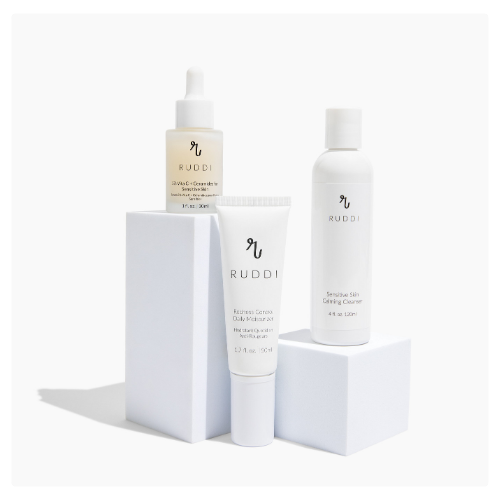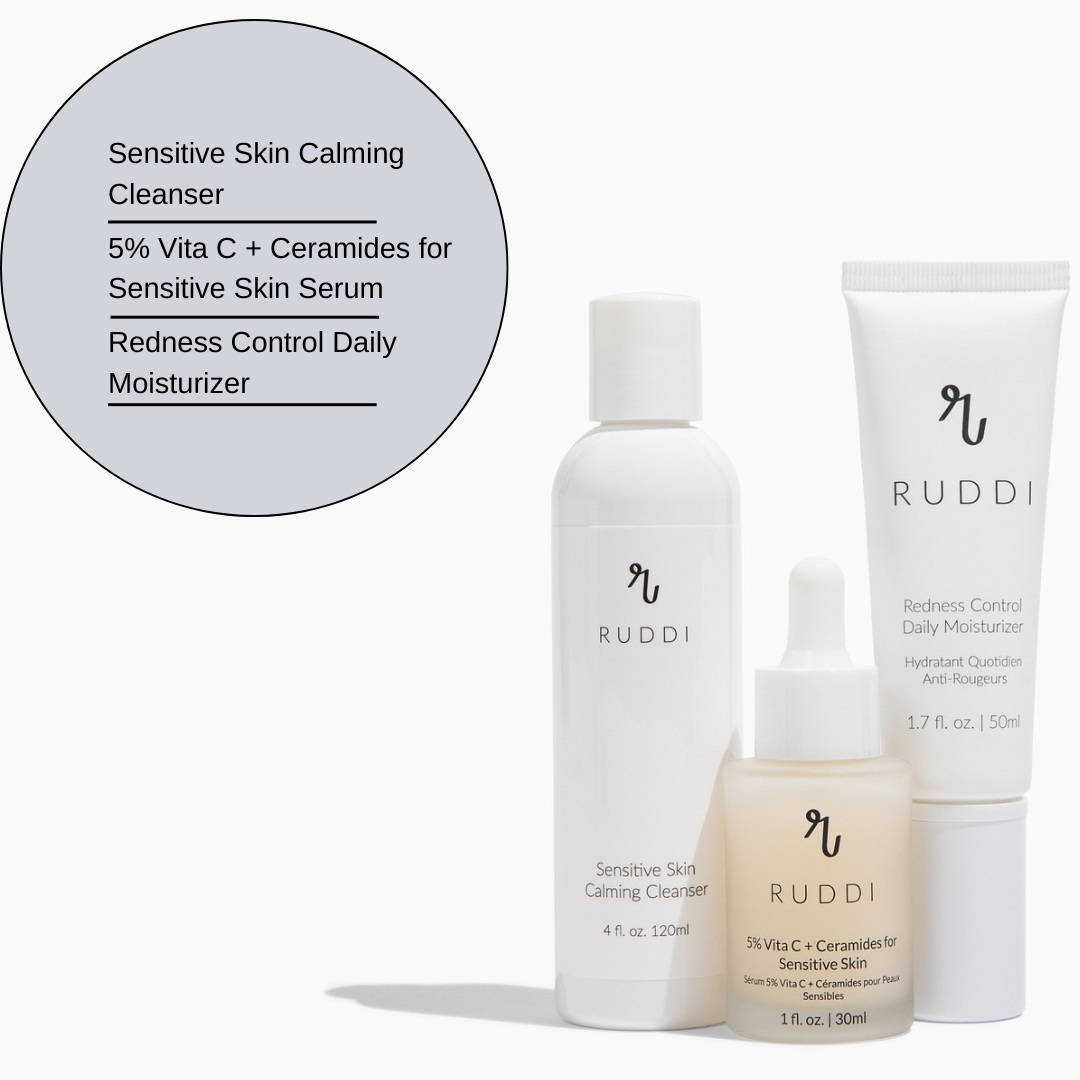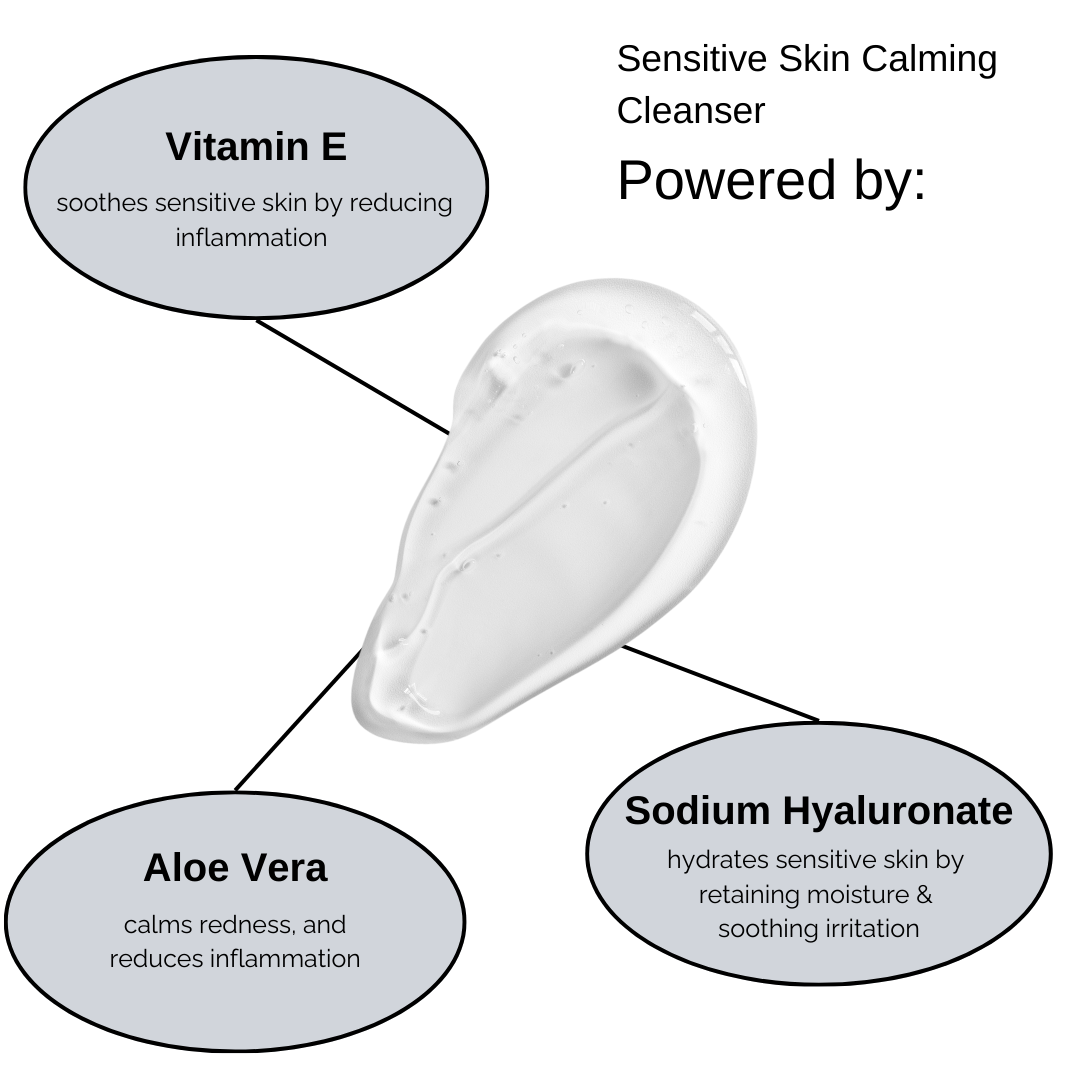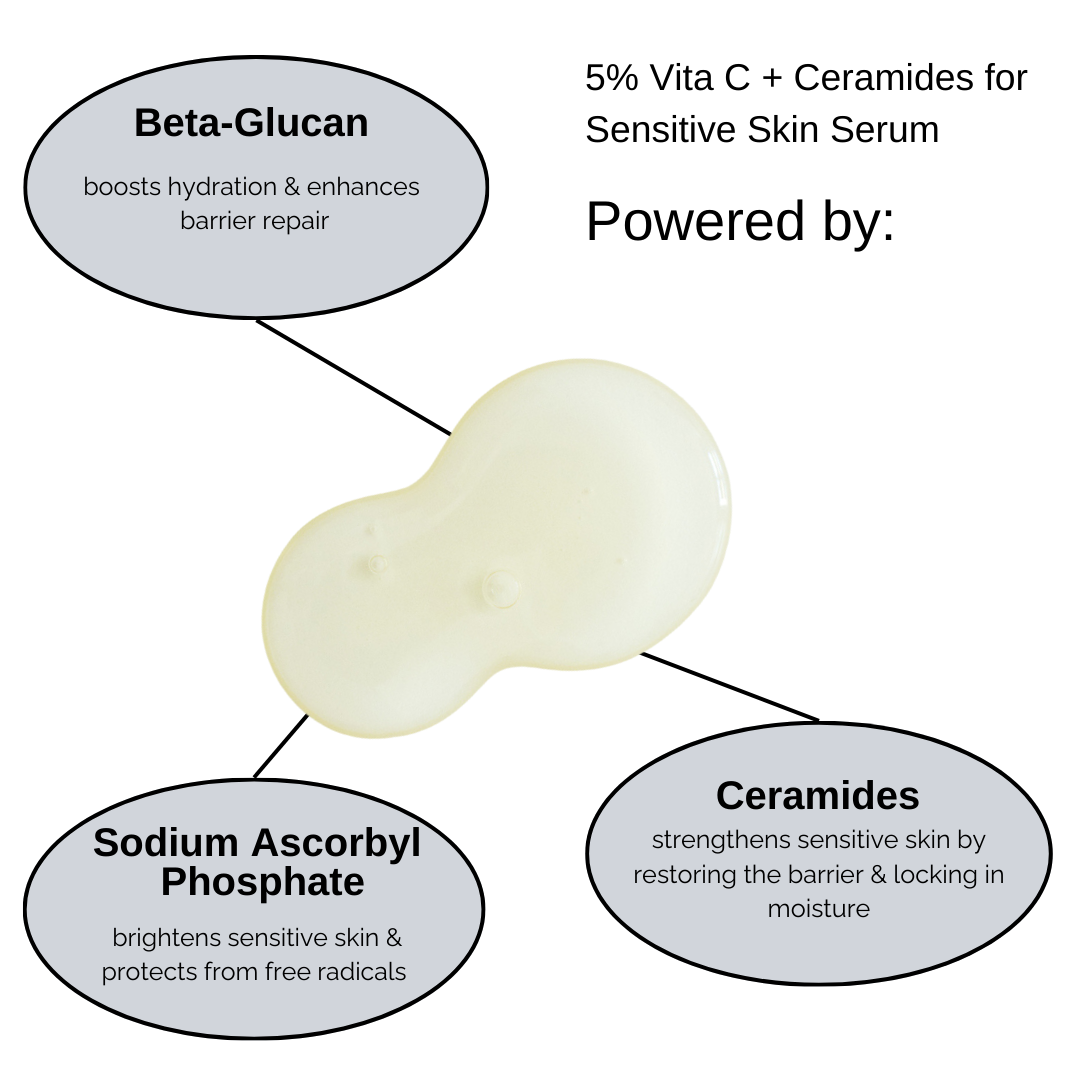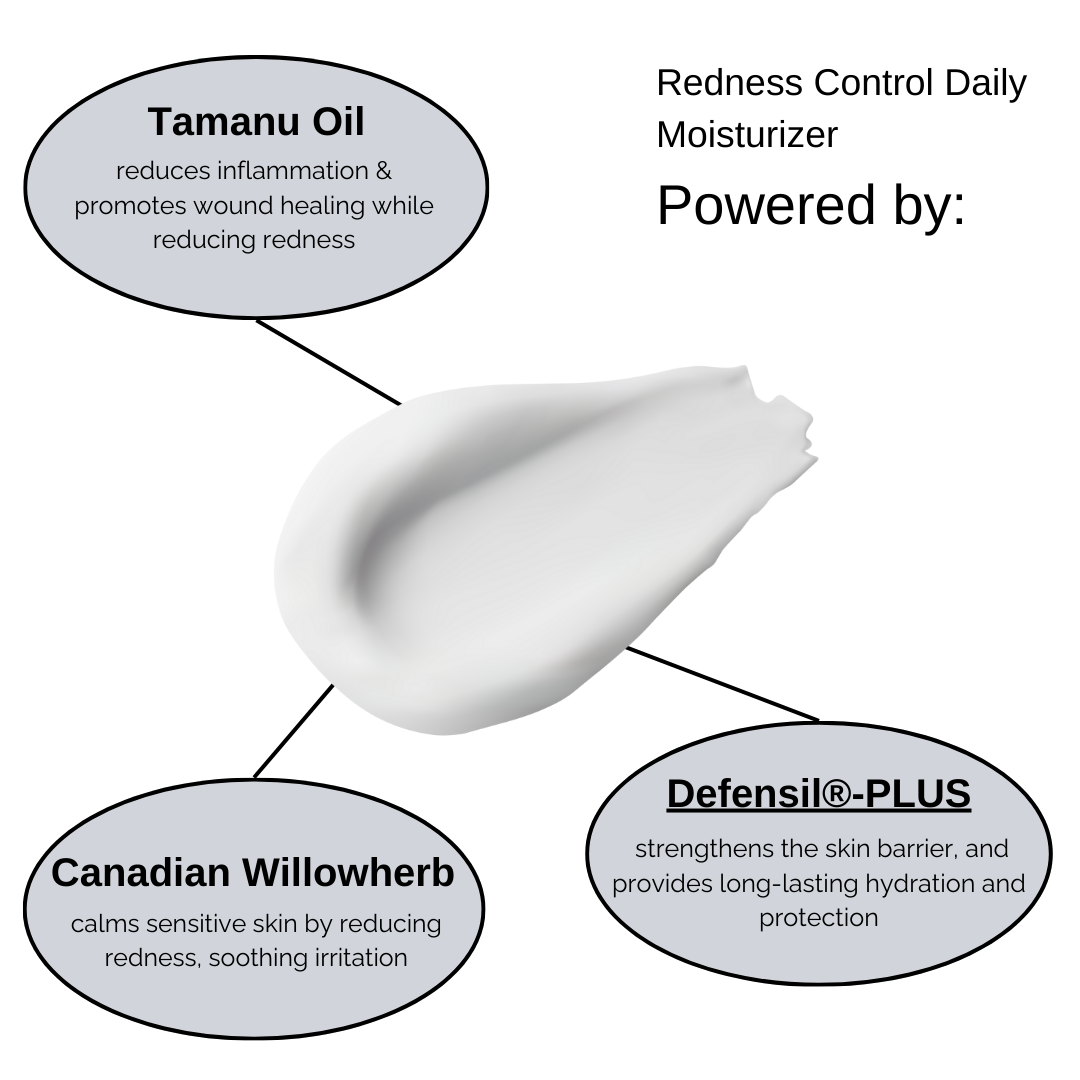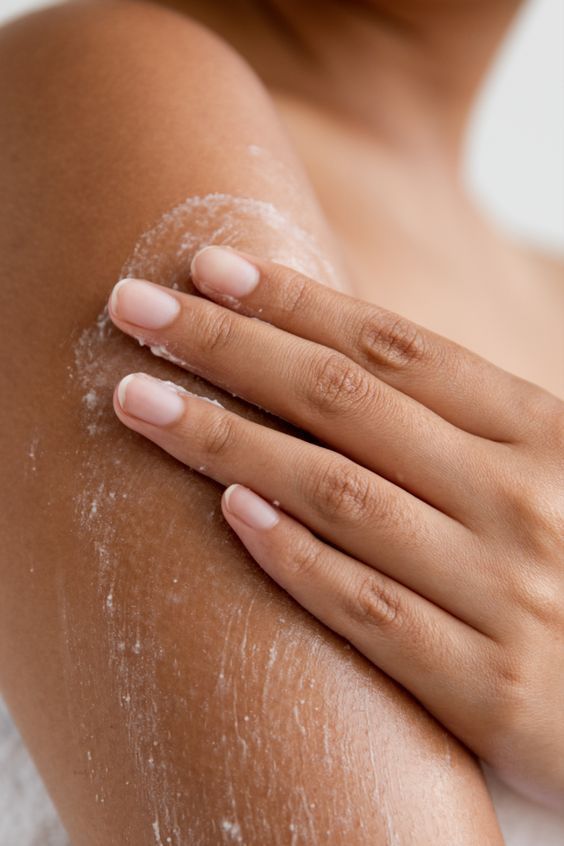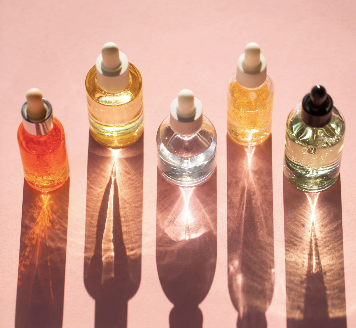
5 Skincare Ingredients To Avoid If You Have Rosacea & How To Identify Them
- Fragrances – Artificial fragrances are a common culprit for skin irritation and should be avoided at all costs. They can trigger inflammation or an allergic reaction which can worsen symptoms of Rosacea.
- Parfum
- Perfume
- Essential oils
- Aroma(s)
- Fragrance oil(s)
- Natural flavour(s)
-
Alcohol – Alcohol is commonly found in many skincare products as a drying agent but it should be avoided if you have Rosacea. It can strip away natural oils that protect the skin, leaving it vulnerable to further irritation and sensitivity.
When looking for alcohols in skincare, check the product's ingredients list for any of the following terms:
- Ethanol
- Denatured Alcohol
- Isopropyl Alcohol
- SD Alcohol (e.g., SD Alcohol 40)
-
Ethyl Alcohol
Alcohol is easy to spot in skin care as all ingredients are labelled alcohol but it's important to understand that there are 2 types of alcohol used in skincare: Ethyl Alcohol and Cetyl or Cetearyl alcohols.
Ethyl alcohols are the ultra drying, irritating alcohols that should be avoided putting on your skin. However Cetyl or Cetearyl alcohols are actually very nourishing and provide tons of benefits for managing rosacea.
- Parabens – Parabens are synthetic preservatives used in products to extend shelf life but they too can cause inflammation and redness on already sensitised skin. The best way to avoid these is to choose ‘paraben-free’ products when shopping for skincare items.
• Methylparaben
• Propylparaben
• Butylparaben
• Ethylparaben
• Isobutylparaben
- Sodium Lauryl Sulfates (SLS) – These surfactants are widely used in foaming cleansers and soaps but they too can irritate sensitive skin causing flare-ups.
- BHA/BHT – BHAs (butyl hydroxytoluene) and BHTs (butyldihydroxytoluene) are additives found in many types of food, makeup, and even moisturizers that help retain colour and fragrance but again these substances could trigger outbreaks so try to find paraben-free alternatives instead. These are those long science terms that are often overlooked – here are the ones to avoid.
• Butylated Hydroxyanisole
• Butylhydroxytoluene
• Hydroxytoluene
Click here - Try it today and save 20% as a new customer with promo code RUDDIBLOG20

